Sepulchrum Mariae Honorii, imperatoris uxoris
£180.00
Sepulchrum Mariae Honorii, imperatoris uxoris
Il Camp Marzio dell’ Antica Roma &c.
Tomb of the Empress Maria Honoria.
First Paris 1800 -1807
Etching
190 x 290 mm
£180
W.E. 563
Sepulchrum Mariae Honorii – Giovanni Battista Piranesi Prints.
Giovanni Battista Piranesi prints.
During the mid-1750’s, frequently accompanied by the British architect Robert Adam (1728-92), Piranesi explored the monuments of the Campus Martius, near the Pantheon.
An open swampy parade ground, bounded by the Capitoline, Quirinal and Pincian hills. The Campus was primarily used during the Republic by Roman citizens as a place of assembly and for grazing livestock.
Pompey built the first stone theatre on the site in 55 B.C., and by the time of the early empire the area was covered with many of the most wonderful structures in Rome, circuses, theatres, porticoes, baths, columns, obelisks, mausolea, temples, etc.
Piranesi depicts the major remains in the form of vedute, their later accretions stripped away.
Giovanni Battista Piranesi (1720-78)
When Piranesi first arrived in Rome in 1740 there was an already established market for views of the city as Grand Tour souvenirs.
His Vedute however, executed from about 1748 until the end of his life transcended mere topographical accuracy. And became a heroic and tragic vision to the power of Roman architecture.
Two aspects of Piranesi’s Venetian background were key to the enabling of this vision:
- his training in engineering and stone construction which helped engender an appreciation of the effects of massive masonry. The poetic effect of ruins
- and his training in stage design which cultivated a sensitivity to effects of light and great skill in both linear and atmospheric perspective.
These architectonic/scenographic concerns found heightened and highly personal expression in Piranesi’s series of fantastic prison interiors. The Carceri d’Invenzione – which first appeared in the 1740’s.
A highly imaginative eclecticism of style characterised Piranesi’s work as a designer. A trait reflecting his belief in a creative attitude towards the use of antique sources.
You must be logged in to post a review.

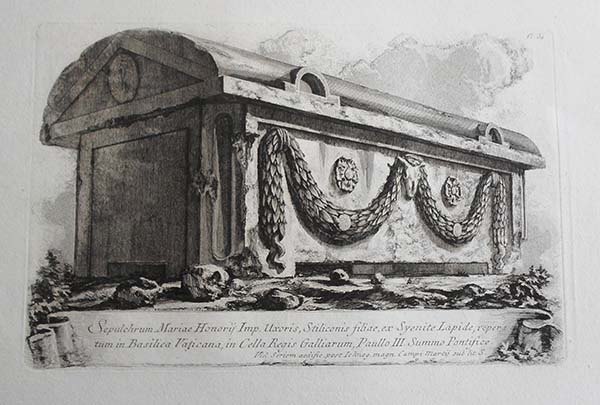
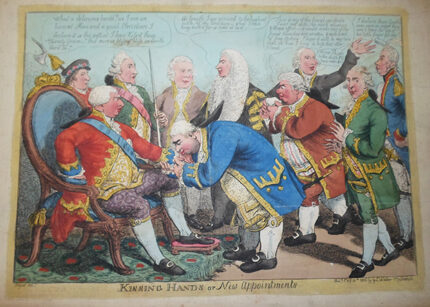
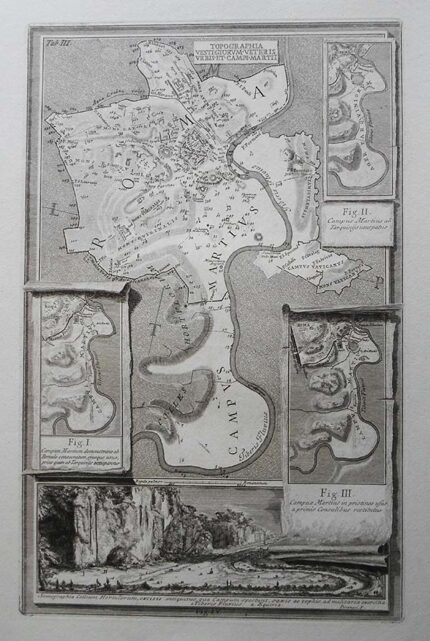
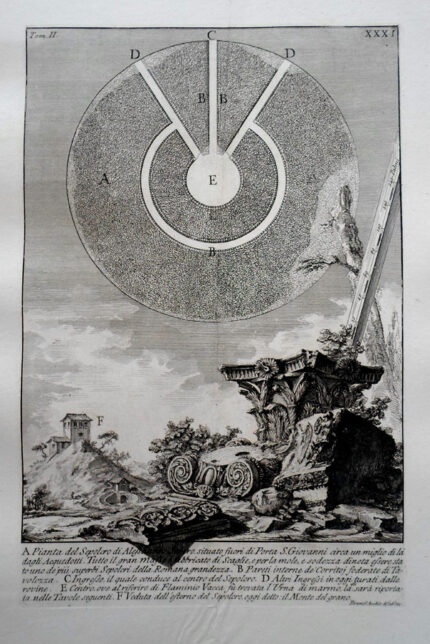
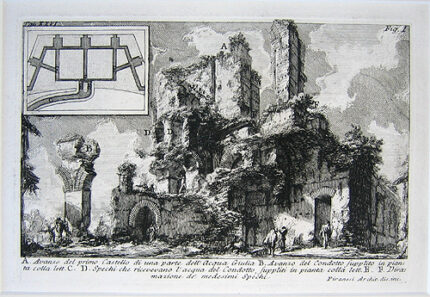
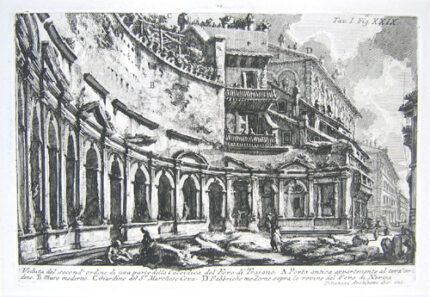
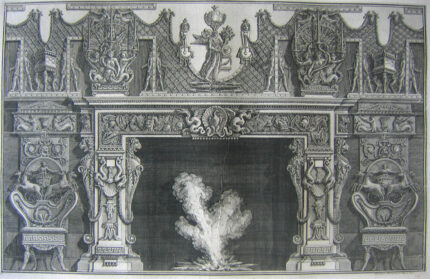
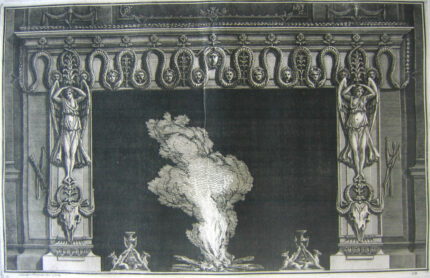
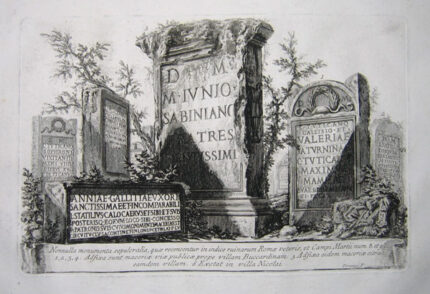
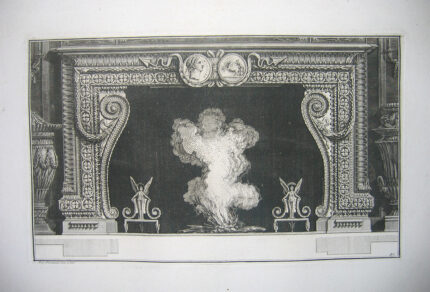
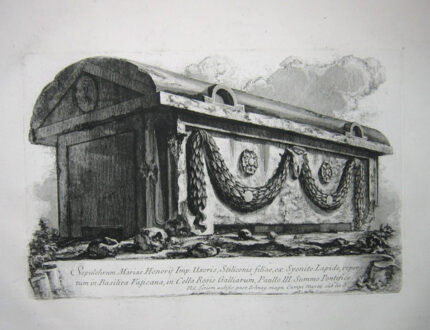










Reviews
There are no reviews yet.